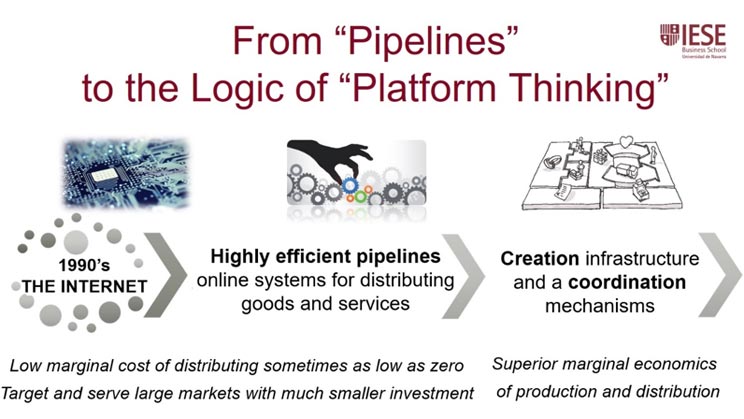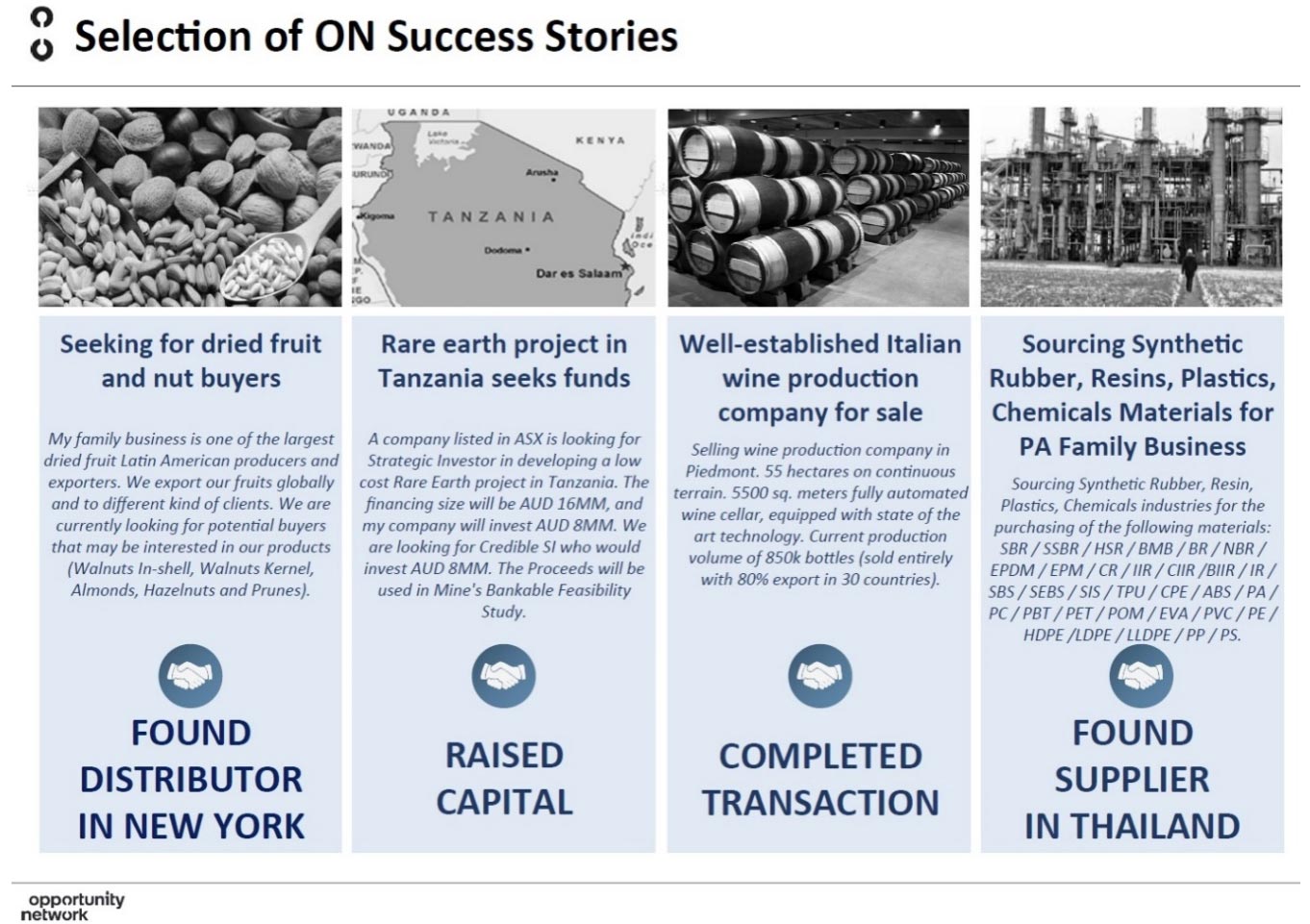It is no secret that the irruption of the internet has transformed our society and businesses, boosting boundless interaction. This context of digital transformation has been the ideal breeding ground for a new type of relationship: a close and long-term interaction between two or more different agents that is mutualistic or commensalistic, where the parts receive some sort of benefit from the relationship. It is the biological concept of Symbiosis invented by the Greek, which means “living together“, from σύν “together” and βίωσις “living”.
Traditionally, the business model of pipes was common across industries. It was a linear model of a value chain created within an organization which offered its products or services at the end. Henry Ford was a pioneer of this model in the early 20th century, with massive lines of production where people worked together under the same roof, either it be a factory or an office, to create products and services, push them out in a straight line and sold them to customers. They called it “Fordism”, a linear flow that was applied in different industries including manufacturing and services, to the point to become the dominant model of business.
The rise of the Internet in the 1990’s allowed the coordination of separated people under a central network able to integrate all of their activities, disrupting the traditional pipe model. This process has been labeled as “Platform Thinking” and has implied the spread of new platform business models.

Unlike pipes, platforms are online systems that distribute goods and services with low marginal costs sometimes as low as zero, serving large markets with much smaller investment. Their biggest disruption has been the ability to decentralize the creation of value, allowing external parties to create, share and consume value. By doing so, the business acts as an arbiter of a community, managing the interactions on its infrastructure. A sort of meeting point where people create and consume value freely without the constrains of a linear pipeline that just creates and pushes stuff out systematically.
The concept of “Platform Thinking” shows us that in an increasingly digitalized world, business must provide the underlying infrastructure on which users can connect with each other and exchange value.
However, how can a platform add value from the start? The answer for Opportunity Network, the startup we have studied, is simple: by seeking symbiosis.
Opportunity Network was born in 2014 in a startup lab of New York City as a “non-disruptive” startup, as their founders like to describe it. Initially born as a newsletter, soon the startup adapted its service to the current digital times and adopted the format of a platform where anonymous business deals from its trusted members were shared.
The platform of Opportunity Network seeks to meet the needs of business leaders, creating a community that brings extraordinary value to its members thanks to the flow of business deals of at least €1 million that are continuously posted at a global scale. Members accelerate time-to-market with peer-to-peer access to the business opportunities available in the network from trusted members only, filtered by affiliated partners.
This is how the needs of business leaders are met through the platform:

These are the “symbiosis” approach factors of Opportunity Network:
A. They started leveraging existing infrastructure: in their case, student-run “family business clubs” from the world’s top Business Schools, including IESE Business School. By accessing their data bases and infrastructure, they were dealing with trustful and reliable members, increasing the number of potential users of quality. On the other hand, clubs increased their volume of deals thanks to the value proposition of the firm with a better service, increasing the satisfaction of the club members and ultimately, becoming more vibrant communities.
B. Boundless connection among businesses, accelerating their time-to-market: members gain peer to peer access to the business opportunities of the collective client network of all the affiliated trusted partners. This translates into win-win deals among medium-size businesses that are beneficial for all the sides, saving time and efforts.
C. Banks collaborate with the platform as trusted partners. The firm leverages on the high-quality customer portfolio of reputable banks and, on exchange, banks gain competitive advantage from exclusive real-time intelligence on their clients’ behaviors and needs. Specifically, banks benefit from:
- Deal origination thanks to the abundant flow of new high-quality business deals over $1 million, stimulating client demand for high margin services;
- Digital leadership enables banks to be a digital vanguard;
- Client intelligence gives them exclusive insight into members’ behavior;
- Client relationships build trust and loyalty;
- Real-time visibility to the community of current and future needs of clients;
- Cross selling allows them to target the right client with the right product at the right time.
The startup seeks to become a relevant player in international business and trade through its platform by enabling cross-border and cross-industries business deals that increase the market share of its members, as we can see in the following sample of real success stories:
The path of Opportunity Network since it was founded in a startup lab in New York City with very few resources is a story of improvement. From the inception of the idea to its adaptation to the market and especially how they executed the whole process was not an easy task. They knew how to deal with their challenges relaying on a strong culture based on collaboration and teamwork that allowed them to expand globally. It has been, in short, a growth based on symbiosis.
Discover their story by accessing the cases:





Awesome and helpful post! Thanks for sharing this post. Nice tips shared.
great post thank you for sharing this article thank you soo much
Yes,Innovation is continuous process ,our goal is to take it in the right way for better future .
Thanks to Julia and Pau for sharing such a great article! Cheers